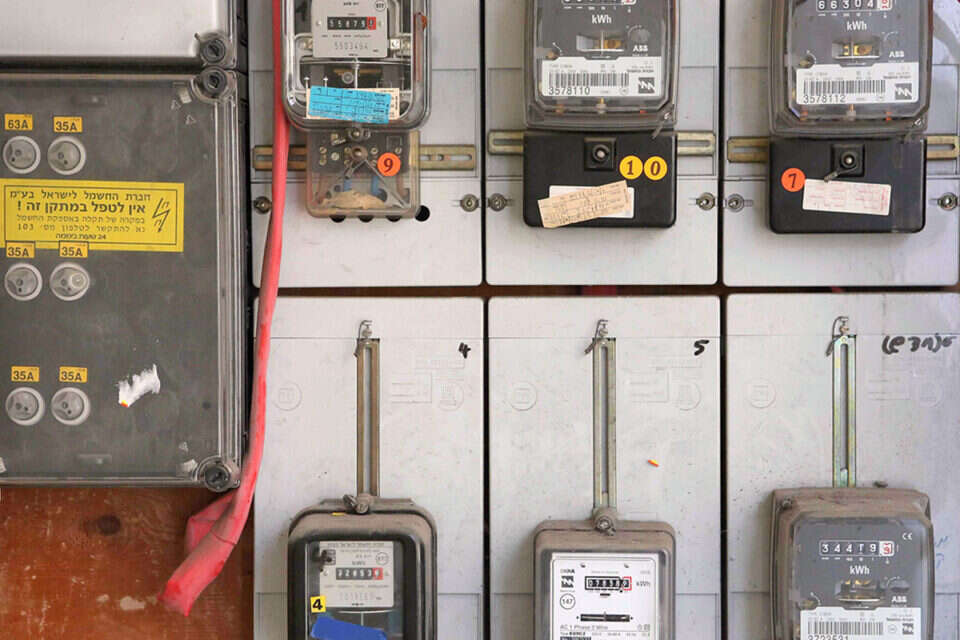A research paper published yesterday by the Bank of Israel points to problems with electricity pricing, which could lead to an inability to meet demand in the coming decades.
"In the absence of flexible electricity tariffs, a severe global warming scenario is expected to increase daily electricity demand peaks in the summer months (April-September) by 4% by 2050, beyond what is expected in warming-up scenarios. A more moderate warming scenario is expected to increase by 2.5%. Peaks in electricity demand, "the study said.
The Bank's research is based on two global warming scenarios fed by climate change simulations from the international project CORDEX, which were adapted by the Israeli Meteorological Service to the coordinates and topography of the existing meteorological stations in the country.
IEC building // Photo: Yehoshua Yosef,
The researchers note that "in Israel, the sensitivity of electricity demand to temperatures is relatively high compared to other countries. Reducing the sensitivity, for example through differential pricing around the clock, will help reduce the effect of global warming on electricity demand peaks, and reduce the required investment in electricity generation."
It should be noted that already now, about 90% of all home meters in Europe are smart meters.
In the United States, their rate is about 60%, with an increased deployment rate. In April, the Israel Electricity Authority decided to deploy 450,000 smart meters in the next two years, with the possibility of an additional 150,000 meters.
Reduce demand
Apart from the reason stated by the Bank of Israel in the research work, a government decision from June 2018 during Yuval Steinitz's term as Minister of Energy, as part of the electricity reform, is to open up the supply section for private homes to competition.
But this competition cannot exist without smart meters - which is another reason for accelerating the transition to smart meters of this type.
The smart meters will make it possible to set demand-driven prices - prices that will be higher during peak hours and lower during peak hours.
Through dynamic pricing it will be possible to reduce the volume of demand during peak hours.
For example, when the consumer knows that at 18:00 the electricity tariff is much higher, he will not operate a dishwasher, electric heater or washing machine at this time.
There is currently no incentive to target consumption during off-peak hours, which according to the Bank of Israel's study may leave the system in a state of disrepair.
Needless to say, global warming is just one scenario that could propel demand beyond the current forecast.
Even more massive intrusion of electric vehicles, and even increased power consumption of server farms concentrated in Israel recently, could lead to consumption exceeding the forecast and leave the economy under-capacity, as is currently the case in China, even if for other reasons.





/cloudfront-eu-central-1.images.arcpublishing.com/prisa/ARR2O7RSB5GA3PHABH4GHEX5FY.jpg)



